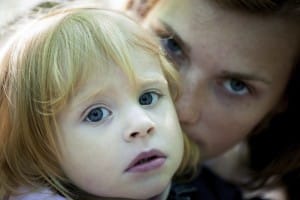A diagnosis of mental illness in your child can be devastating news. Although advances in treatments and medications have made leaps and bounds in recent years, coping with a mental illness is still challenging. When that mental illness is bipolar disorder and the affected person is a child or teenager, the effects reach far and wide. Parents, siblings, friends, and even extended family can feel consequences of a child or teenager with this mood disorder.
What is Bipolar Disorder?
Bipolar disorder used to be called manic-depressive illness because it is characterized by extreme mood swings from mania to depression. It is a disorder of the brain that causes both physical and psychological symptoms severe enough to disrupt everyday life. No one knows precisely what causes bipolar disorder, but research does indicate that there may be genetic factors and that imbalances in neurotransmitters, which are chemicals in the brain, are to blame. Most people with bipolar disorder are diagnosed before the age of 25. It most commonly first appears in the late teen years, but it can also show up earlier. This is called early-onset bipolar disorder. While mood swings are not necessarily unusual in teens, those associated with bipolar disorder are extreme. They are much worse than the normal teen behavior. When manic, your child may seem euphoric, very self-confident, may speak very quickly, may make poor decisions or engage in risky behaviors, have delusions, or get distracted easily. When depressed, he may have trouble sleeping, have suicidal thoughts, lose interest in activities, have trouble at school, be unable to focus, or have chronic pains. If your child develops bipolar disorder earlier than is typical, you may see more severe symptoms and you may see them more often than in an adult with the illness. Children and teens with bipolar tend to switch moods more quickly and show more aggression and anger than adults.
Effects on the Family
When children show signs of and then are diagnosed with bipolar disorder, it can be a very confusing and upsetting time for all members of the family. The child himself will struggle to understand what is happening and why he feels so angry, depressed, and moody. The rest of the family will suffer along with him. There are many ways in which the parents and siblings of a bipolar child or teen experience the disorder.
- Emotional effects. Especially before a diagnosis has been made, a bipolar child’s behavior can take an emotional toll on the family. During manic episodes, he may be angry and even verbally abusive. When his siblings and parents do not understand why this is happening, it can be very upsetting. During depressive episodes, family members may feel neglected by him. If his younger sister is used to having him help her with her homework, for instance, and suddenly he has no interest in her, she may feel devastated and as if she did something wrong.
- Social effects. The manic and depressive episodes and the suddenness of the swing from one to the other can be difficult to explain in social situations. As a result, a family may begin to avoid social occasions. They may stop going to events with extended family or to parties with friends. As a result, the social network for the entire family, parents and siblings, may shrink.
- Family structure. When caring for a child with a mental illness, there may be shifts within the family and relationships can suffer. The two parents, for instance, may find less and less time to be with each other and their intimacy may decrease. One parent may take more responsibility for the child and resent the other parent for not doing more. The siblings of the affected child may feel neglected because the parents need to devote more time to him.
- Financial effects. Treating a chronic mental illness is not cheap. Even with insurance, the costs can get out of hand. Medications, as well as therapy sessions, add up quickly. The family may find their financial situation changing. The other children may feel the effects of cut backs, such as less money spent on clothes, sports and activities, gadgets, and other things they are used to having.
- Stress. The loved ones of anyone with a mental illness will feel stress. Coping with bipolar disorder in a child creates stress in every member of the family, from the parents, to younger siblings, and older siblings too. If not dealt with in a healthful manner, the stress caused by bipolar disorder can have wide-reaching effects of its own. The other children may begin acting out, their schoolwork may suffer, and the parents may experience anger, insomnia, or changes in eating habits.
Bipolar disorder in any member of the family is disruptive, stressful, and frightening, but when it occurs in a child, the effects are especially devastating. Getting a diagnosis then finding treatment plan and sticking with it are essential for minimizing the negative consequences for the rest of the family.



